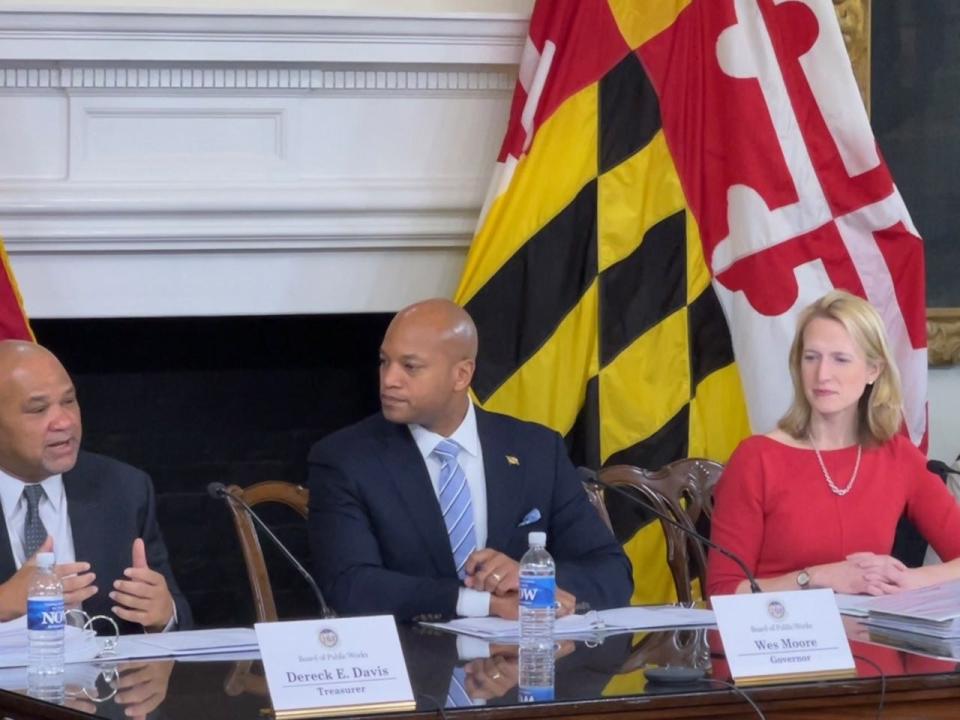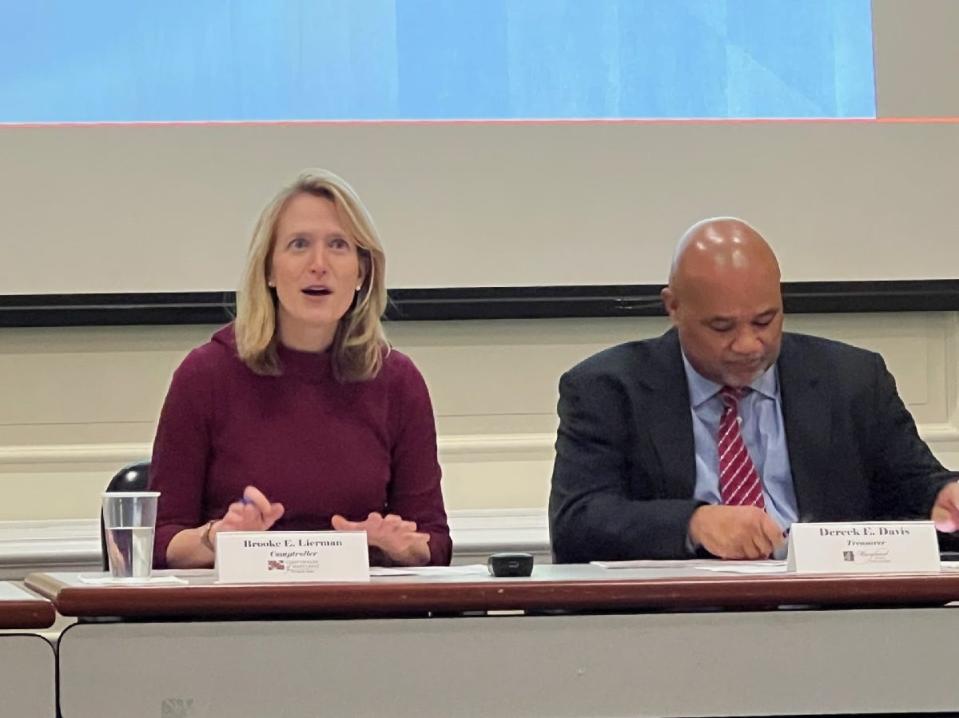Maryland has slight bump in minority business participation, short of 'aspirational goal'
A new report from the Maryland Governor’s Office of Small, Minority & Women Business Affairs shows that the rate of Minority Business Enterprise participation increased slightly last fiscal year, which included the first six months of the Moore-Miller administration.
The new figures on participation of women and minority businesses in state contracts provide the first glimpse into a new Democratic administration striving to meet the “statewide aspirational goal of 29 percent,” which was put forward during the administration of Republican Gov. Larry Hogan but was repeatedly fallen short of in meeting that mark of minority participation.
The 17.85 percent rate in fiscal year 2023 is slightly above the 17.27 percent rate in fiscal year 2022, the last full year of the Hogan administration. The highest rate in the last decade was 27.3 percent in fiscal year 2014, the last full year of the administration of Democratic Gov. Martin O’Malley. It was during the O’Malley administration in 2013 that 29 percent goal was first set, according to an executive order signed by Democratic Gov. Wes Moore last year that aimed to promote data reporting by state agencies and local jurisdictions for state government contracts.

As a candidate for governor in 2022, Moore proposed meeting the state’s own goal as a way to close the gap in wealth between Black families and white families. In the gubernatorial debate before the general election that year, he indicated the state had an 8-to-1 racial wealth gap.
A 2020 piece published by The Brookings Institution indicated that nationally the median white household had 7.8 times more wealth than that of the typical Black household. The Brookings article attributed that gap to governmental policy decisions (i.e.-redlining) made over decades.
“I’m encouraged by our progress so far,” said Moore, in a message at the start of the fiscal year 2023 report.
RECAP: Only Maryland governor debate
The statewide ‘aspirational goal has remained flat.’
The body of the report contained a more moderated message.
“Over the past three fiscal years, attainment of the statewide (Minority Business Enterprise) aspirational goal has remained flat,” the report said. “The Moore-Miller Administration is working through the (Governor’s Office) and across all participating agencies to identify both barriers and solutions to key issues such as implementation of best practices, evaluation for individual contact goal setting and compliance through the life of the contract.”
Also announced on Tuesday, the same day the report was published online, was the naming of Nichelle Johnson as the state’s first Minority Business Enterprise Ombudsman. A press release from the governor’s office indicated the connection between the role and the desired achievement of the state’s goal.
More: Boys & Girls Clubs in Salisbury, Hagerstown get boost to expand child services
“The Moore-Miller administration is working to close the racial wealth gap and promote access to work, wages, and wealth in part through increasing state government’s performance toward reaching its 29% Minority Business Enterprise program participation goal,” the release said.
The report acknowledged bipartisan legislation passed into law last year, which requires an audit of all units of Maryland State government that are required to participate in the program. The report said that 73 units report Minority Business Enterprise participation data as required.
Several of those “units” are state universities, including Frostburg State and Salisbury State. The report showed that Frostburg State University had only one completed contract in fiscal year 2023, but that contract did meet the Minority Business Enterprise participation goal. Salisbury University had three contracts in that fiscal year, but only two of the three met the goal.
“Salisbury University wholeheartedly supports Governor Moore’s Minority Business Enterprise program," said Salisbury University President Carolyn Ringer Lepre, in an emailed statement, "and will continue our efforts to bolster involvement in the initiative."She noted the university's 99 percent overall compliance rate as "among the highest in the State."
"We will continue to explore opportunities to help increase the pool of minority-, women- and veteran-owned businesses in our region who may be approved as State vendors," the statement said.
Board of Public Works member: ‘We still have work to do.’
Nearly $1 billion ($991,293,121) in state contracts was doled out to Minority Business Enterprises in fiscal year 2023, according to the report. Those businesses were named as “prime contractors or subcontractors on 9,729 awards in FY2023, which represents a 2 percent increase from the previous fiscal year.”
Women represented the highest percentage of the total Minority Business Enterprise procurement at 34.58 percent.

“While we’ve made significant progress toward reaching our goal of 29 percent Minority Business Enterprise participation,” said Comptroller Brooke Lierman, the first woman independently elected to a statewide constitutional office in Maryland, in a “Year in Review” video posted to the comptroller’s YouTube channel on Jan. 16, “we still have work to do.”
RECAP: Q&A: New comptroller releases roadmap for tax office, talks reorganization, reforms
Dwight A. Weingarten is an investigative reporter, covering the Maryland State House and state issues. He can be reached at dweingarten@gannett.com or on Twitter at @DwightWeingart2.
This article originally appeared on Salisbury Daily Times: With Gov. Moore, rate of minority business rises slightly in Maryland

